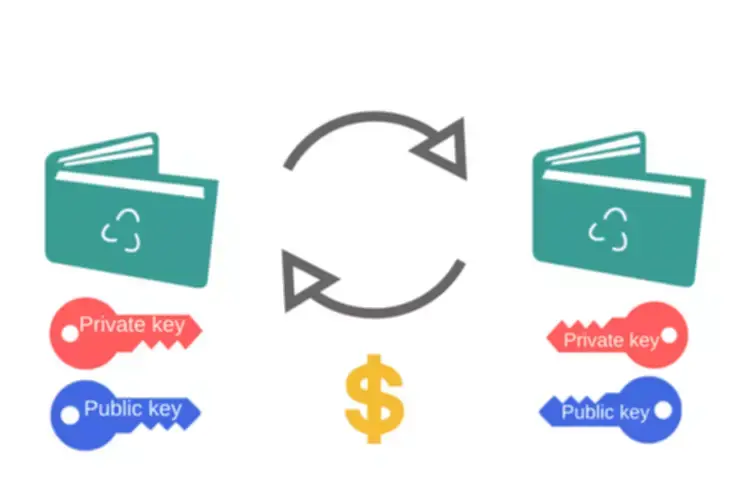The Ultimate Guide to Self Clearing Broker Dealers B2Core
Content
They are responsible for ensuring that trades are settled correctly and efficiently by reconciling trade details, managing margin requirements, and transferring funds between accounts. They also handle things like margin calls (when investors need to put up more money to cover potential losses) and ensure compliance with various regulations. Instead, they go through a clearing firm that matches up buyers and sellers and ensures that all trades are settled properly. A clearing broker will work for a clearing company, which ensures that a trade is settled appropriately and the transaction clearing broker dealer is successful. Clearing companies are also responsible for reporting the trades while maintaining the paperwork required.
Benefits of Using a Specialized Clearing Broker
- They also conduct regular audits to ensure compliance with regulatory requirements.
- However, one critical aspect of their role is maintaining custody of client assets.
- However, it’s important to note that regulatory changes have made it more difficult for smaller clearing firms to compete with larger ones.
- Specialized clearing firms provide clearing services for specific markets or products, such as derivatives, commodities, or foreign exchange.
- Increased capital requirements and other regulations have had an impact on the ability of clearing firms to provide their services.
- By doing so, you can benefit from their expertise and streamline your back-office processes, ultimately providing better services to your clients.
Also referred to as clearinghouses, clearing firms are responsible for managing risk and facilitating trades between buyers and sellers. As a broker-dealer, it’s important to consider partnering with a reputable clearing firm to Mining pool improve your risk management and operational efficiency. Independent clearing firms can also provide benefits to financial institutions, hedge funds, and investment advisors. Clearing firms play a crucial role in the financial industry by providing clearing and custody services to a broker dealer or RIA. Investment brokers are involved in investment banking by helping to find buyers and sellers of investment securities. They often give investment advice to their clients and earn advisory fees, which could be commission or fee-based.
What Is an Introducing Broker-Dealer? Definition and Examples
However, not all broker-dealers are the same; they differ based on how they handle clearing and settlement operations. For example, let’s say you’re a commodities trader looking to expand into the https://www.xcritical.com/ energy market. A specialized clearing broker with experience in energy trading can provide you with the knowledge and expertise you need to make informed trading decisions and manage your risk effectively. A self-clearing broker-dealer is a financial intermediary that not only executes trades but also handles the clearing and settlement processes internally, without relying on third-party clearinghouses or other intermediaries.
Q: Do larger brokers tend to use independent clearing firms?
Using a specialized clearing broker can provide you with a range of benefits when it comes to OTC trading. They have the expertise, risk management tools, and efficiency you need to succeed in this complex and challenging market. For example, let’s say you’re a hedge fund manager with a portfolio of OTC derivatives.

OTC clearing has a lot of moving parts, and it can be a complex process that requires expertise in several areas. A clearing broker can simplify the process by providing a one-stop-shop for trade execution, clearing, and settlement. A specialized clearing broker, in particular, can offer many advantages, including cost savings. Choosing the right clearing broker for your needs is a crucial step in mitigating risks when trading derivatives. A clearing broker acts as an intermediary between the buyer and seller by ensuring that both parties meet their obligations.
This will lead to an additional assessment performed by the auditor, as no SOC 1 report for the clearing firm would be available. This may lead to the testing of controls over significant areas of the back-office system that relate to materially significant financial statement line items and would result in additional costs. For example, if you are a beginner trader, you may want to choose a clearing broker that provides educational resources and tools such as trading simulators that allow you to practice trading strategies without risking real money. On the other hand, if you are an experienced trader, you may prioritize a broker that provides advanced trading tools and research reports to help you make more informed decisions.
One area of potential growth for clearing firms is expanding into new markets. Clearing firms act as intermediaries between buyers and sellers, ensuring that all parties meet their obligations and facilitating trades. These rules require clearing firms to maintain sufficient capital and to have procedures in place to manage potential defaults.

The largest clearing firms maintain custody of client assets and ensure that they are protected from potential risks while maintaining overall market stability and investor confidence. If end-to-end trade clearing is managed within the firm, the broker has more control over the trade settlement procedure. A vertically integrated business model gives the brokerage firm total authority. Without a middleman, it is possible to identify and address any inconsistencies immediately without consulting a third party. Even though mistakes in trade settlement are uncommon, it is helpful to know that any problems may be quickly and effectively resolved in one location.
For example, a pension fund could go and invest in many countries and have one place to monitor its global portfolio. 11 Financial may only transact business in those states in which it is registered, or qualifies for an exemption or exclusion from registration requirements. 11 Financial’s website is limited to the dissemination of general information pertaining to its advisory services, together with access to additional investment-related information, publications, and links.
Clearing firms are a crucial component of financial markets, providing essential services to traders and investors. These requirements are set by regulatory bodies and are designed to ensure that clearing firms have sufficient capital to cover potential losses. They provide clearing and custody services to broker dealers or RIAs, which involve the clearing process of buy and sell trades. Choosing the right model involves aligning your firm’s resources, business strategy, and compliance capabilities with the characteristics of each broker-dealer type. By carefully evaluating these factors, firms can select a broker-dealer model that optimizes their operations while effectively managing costs and regulatory requirements. A self-clearing broker is a brokerage firm that does not rely on a clearinghouse or separate clearing firm to buy, sell, and take custody of securities for their clients.
Self-clearing firms control everything from market access and the launch of the trading process to the settlement process and clearing operations, which significantly contribute to the efficient completion of transactions (trades). As a result, self-clearing brokers have an undeniable advantage in terms of convenience and speed, offering their clients an exceptional trading experience by controlling and managing all processes independently. The important role of clearing firms in the market is due to the availability of short-selling opportunities.
The fee varies on the type and size of the transaction and can be quite high for futures traders. Examples of some large clearing houses are CME Clearing (a unit of CME Group Inc.), ICE Clear U.S. (a unit of Intercontinental Exchange Inc.), and LCH Ltd. (a unit of London Stock Exchange Group Plc). Finally, custody fees are charges for holding and safeguarding clients’ securities and other assets.
Clearing brokers not only handle orders to buy and sell securities but also maintain custody of an account holder’s securities and other assets (such as cash in the account). Because they have custody of customer assets, carrying firms must maintain higher levels of net capital than introducing firms—and they are responsible for segregating the customer funds and securities in their custody. For information pertaining to the registration status of 11 Financial, please contact the state securities regulators for those states in which 11 Financial maintains a registration filing. A clearing firm is a financial institution that facilitates the settlement of trades between two parties by acting as a middleman. These bodies are responsible for enforcing regulations and standards related to clearing firms and the markets they operate in.
The clearing charges vary by the broker to broker and also by the trading segment. Invest brokerage-free Equity Delivery and Direct Mutual Funds (truly no brokerage). No mobile information will be shared with third parties/affiliates for marketing/promotional purposes. All OPT-IN requests will be sent via email only and will include text messaging originator opt-in data and consent; this information will not be shared with third parties.
The clearing process is a backend process which includes determining the fund and securities obligation of a broker and then settling them with exchanges through the clearing corporation. Broker pays this fee to the professional clearing member who helps them settle the trades with exchanges. Ultimately, the choice of clearing broker service will depend on the trader’s individual needs and priorities. It’s important to note that clearing firms are subject to regulation by the U. Market makers provide liquidity to the market by buying and selling securities at quoted prices, while hedge funds use a variety of investment strategies to generate returns for their investors. However, some financial institutions may prefer to self-clear to maintain greater control over the clearing process.